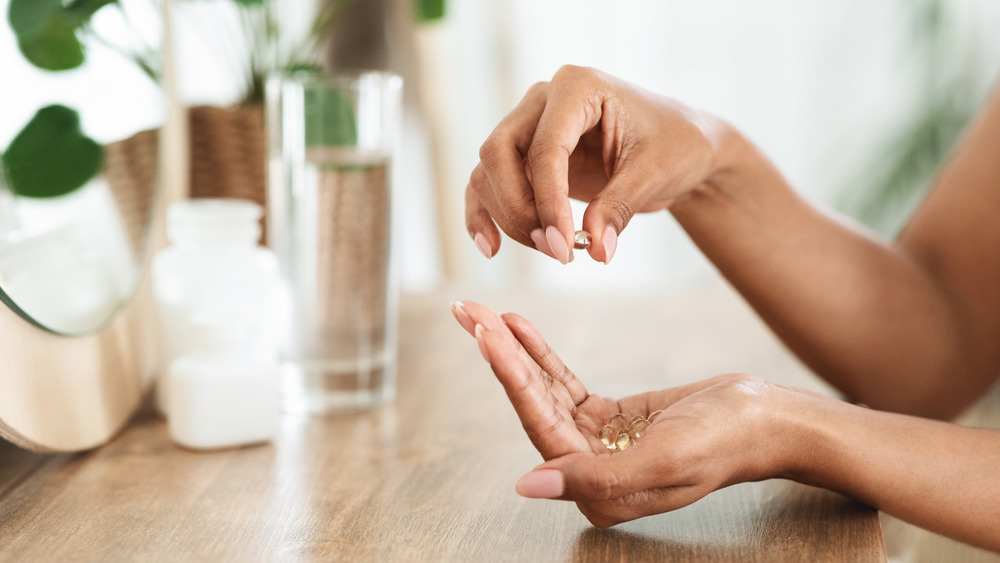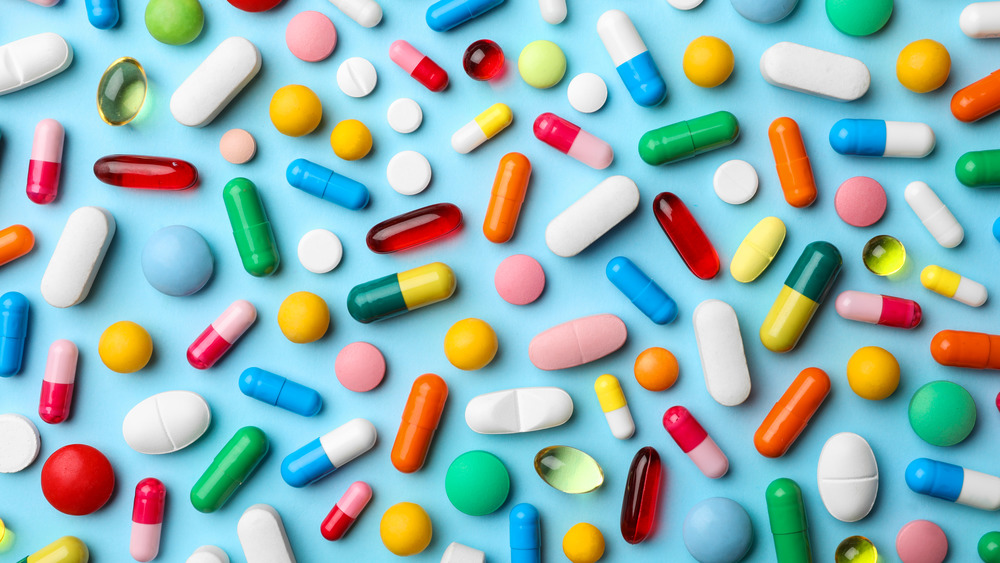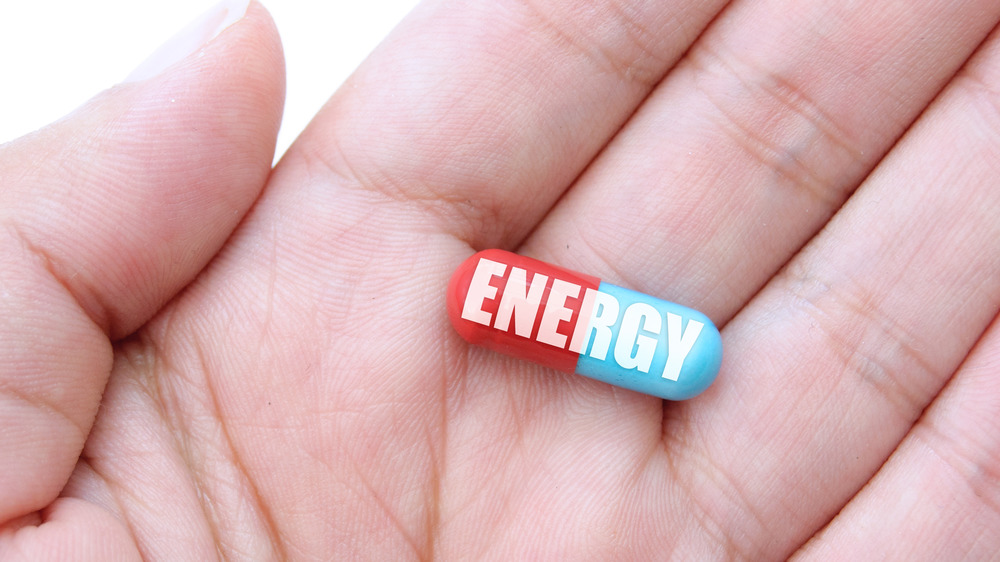Surprising Supplement Ingredients You Shouldn't Be Taking
If your self-care routine is already in tip-top shape, including regular exercise, a diet full of fruits and vegetables, and plenty of water and sleep, you might be tempted to boost the effects of all those healthy choices with the addition of some simple supplements.
However, as you may or may not know, the supplement industry is horrifyingly unregulated, so much so that the new "miracle" supplement you've seen promoted across social media recently could have many unwanted side effects, including but not limited to: organ damage, cardiac arrest, cancer, and death (via Everyday Health).
While it's tempting to think these dangerous side effects are limited to sketchy discount supplements you can find online, the truth is they're present and for sale everywhere, from CVS to Walmart to Costco, and even Whole Foods! So, do yourself a favor and scan your supplement bottles for the following, potentially dangerous ingredients (and keep in mind that they can sometimes appear under different names).
Of the supplements worth avoiding, you'll find them labeled as: aconite, caffeine powder, chaparral, coltsfoot, comfrey, germander, great celandine, green tea extract powder, kava, lobelia, methylsynephrine, pennyroyal oil, red yeast rice, usnic acid, and yohimbe. Of course, if you're already on prescription medication, be sure to also discuss any supplements with your doctor before adding them to your regimen.
Supplement ingredients that could cause cancer
There are plenty of supplement ingredients that could cause minor side effects, which is why you should always do your research before introducing any new supplement to your routine. However the scariest potential side effects are undoubtedly cancer and death. Experimenting with supplements when dealing with terminal cancer is completely understandable; however some of those supplements are known to be toxic to the body.
Take chaparral, for instance; also known as creosote bush, greasewood, larrea divaricata, larrea tridentata, and larreastat, this supplement's ingredient has been used for centuries as a medicinal and homeopathic treatment for everything from cancer to arthritis to skin conditions. However, its toxicity to the body, particularly to the liver, has gotten it banned in most countries (via Healthline). Unfortunately, it's still legal to sell it in the United States, thanks to a long history of very lax regulations on the dietary supplement industry (via Harvard Health Publishing).
A second potential cancer-treating supplement ingredient you might have heard of is comfrey (aka blackwort, bruisewort, slippery root, or symphytum officinale). While this shrub has been historically used to treat muscle sprains, bruises, burns, and joint inflammation (among other maladies), studies have shown that ingesting the plant in any form is not safe and can lead to severe liver damage, cancer, and even death (via Healthline).
Sneaky supplement ingredients that could kill you
Sometimes, it's the most familiar-sounding names that disguise treachery in supplements. For instance, caffeine powder might not sound much scarier than your typical morning coffee. However, this supplement ingredient, commonly used in weight loss and athletic performance enhancing products, can cause seizures, heart arrhythmia, cardiac arrest, and even death, particularly if combined with other stimulants (via WebMD).
For the same reason, you might be quick to trust "green tea extract powder" if you saw it on a supplement bottle. After all, we could all use a little more green tea in our diets, no? Well, in reality, "green tea extract powder," or camellia sinensis, which you'll often see used in weight loss products, can cause poor absorption of iron, elevated blood pressure, liver damage, a decreased efficacy of certain prescription medications, and even death (via ABC7).
With all this in mind, the best way to take supplements is to keep your doctor in the loop on what you're taking and ask their advice before adding anything to your regimen to ensure that the products you buy are safe and won't interact badly with any other medications or pre-existing conditions. Oh, and the best way to take your tea or coffee is in drink form.


